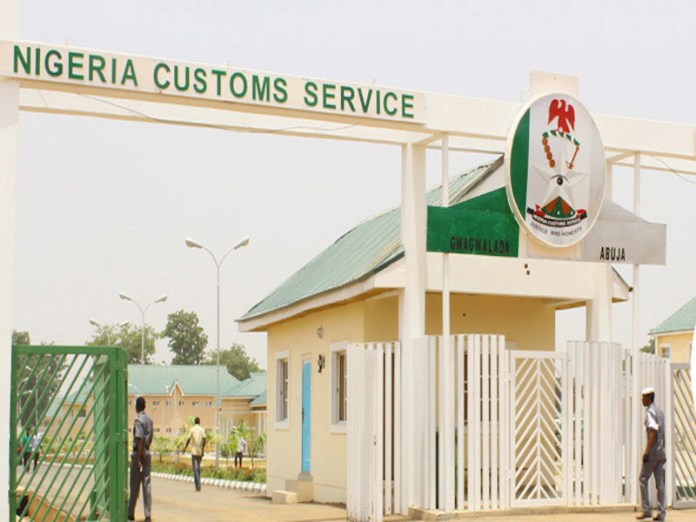- Operators Fault Customs N1 Trillion 2017 Revenue Claim
Stakeholders in the maritime sector have picked holes in claims by the Nigerian Custom Service (NCS) that it raked in N1trillion revenue in 2017, stressing that most of the assumptions were not correct.
The NCS Public Relations Officer, Mr Joseph Attah, had while addressing journalists in Abuja last week, announced that the service recorded its highest revenue collection ever of over N1 trillion as against N770 billion target set for 2017.
But some experts, who spoke on the matter said there is an error in the figures, citing foreign exchange differential and the addition of waivers not granted as possible reasons the NCS arrived at the said figure.
For Instance, the National President of National Council of Managing Directors of Customs Licensed Agents, (NCMDCLA), Lucky Amiwero said when the increase in foreign exchange is factored in the amount realised by the NCS was far less than they are claiming.
According to him, “The problem it has to do with foreign exchange. In 2015 when the naira was exchanging for between N150 to N180 to a dollar, the NCS recorded a revenue of less than N950 billion, the exchange rate contributed to it.
“Also, there is a lot of valuation lifting at the nation’s ports across the country, most of the job attracts extra value which nobody contests. Customs cannot put waivers as revenue collection. Waivers are used to encourage investment and encourage local industry to grow.”
Others, who spoke on the condition of anonymity, said the Customs could not have recorded the N1.1 trillion, adding that the numbers were made up for it look like the service was doing very well in revenue collection.
Attah had said that the NCS recorded the highest revenue collection ever of N1,012,259,006,779.74 with five more working days to the end of 2017.
“This spectacular performance in revenue collection shows N241,685,276,289.74 over the N770,573,730,490 target for the year and well above the N898,673,857,431.07 collected in 2016. “This is despite the economic recession experienced earlier in the year, with low volume of imports and restriction placed on 41 items from accessing forex.
“The Comptroller-General of Customs (CGC), Col. Hameed Ali(rtd), undertook some strategic measures in terms of restructuring and repositioning the service for efficient service delivery which resulted in this historic revenue figure from the service this year,” Attah said.
He said that for Ali to achieve this feat, he took some measures like strategic redeployment of officers, re-training of the operatives of Customs Intelligence Unit were done, among others.
Attah said that the NCS strived to deliver, adding that sometimes even at the risk of sustaining serious injuries or even death.
“Sadly in the process of enforcing the laws, six officers fell in the line of duty this year,’’ the spokesman said.
He said that the Customs boss had directed sustained onslaught against smugglers, especially at this festive period.
Attah, however, noted that in the spirit of the season, all stakeholders were enjoined to reflect on the value of patriotism and resolved to avoid all forms of smuggling.
“It is clear that given the right leadership and better support from Nigerians, NCS will continue to play a more pivotal role in the security and economic well-being of the nation, ” he said.

 Forex2 weeks ago
Forex2 weeks ago


 Naira2 weeks ago
Naira2 weeks ago
 Naira4 weeks ago
Naira4 weeks ago
 Company News4 weeks ago
Company News4 weeks ago
 Billionaire Watch1 week ago
Billionaire Watch1 week ago




 Naira2 weeks ago
Naira2 weeks ago




 Naira4 weeks ago
Naira4 weeks ago




 Naira1 week ago
Naira1 week ago






















